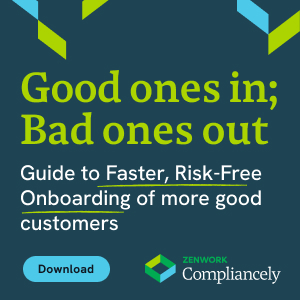Why Customer Identification Process (CIP) Is Important for Every Business?

Banks, financial institutions, insurance companies, and other entities on board a variety of profiles, including but not limited to customers, vendors, partnering entities, associates, intermediaries, and more. The process of verifying an individual or an entity is essential to ensure that the incoming party does not threaten or compromise the existing financial system and regulations.
It is important to consider the statistics of economic crime, which has been on a steady rise [1] since the early 2000s. And data shows that it’s only going to get worse as decades unfold.
In times like this, identity verification and customer identification processes enable KYC compliance by streamlining the onboarding procedures of financial institutions, banks, and other entities.
The following will discuss in detail the key reasons why the customer identification process (CIP) is important for every business, regardless of the industry it’s in.
Effective profile verification
Identity verification is the primary goal of the customer onboarding process. CIP helps with identifying and verifying the social security information, along with tax details and other prudent information of the customer to assess the risk factors. These risk assessments allow you to conclude the profile’s credibility and gain insights into the legal status.
AML validation and compliance
Money laundering has been one of the biggest concerns in the past five years along with terrorism financing activities. The IRS, Department of Treasury, and other federal watchdogs have been issuing statements and alerting the businesses within the financial services sector to pay special attention to high-risk profiles.
Only a robust customer identification process enables businesses, banks, and financial institutions to prevent onboarding parties possibly engaged in money laundering, terror financing regimes, and other restricted activities. Validation tools like OFAC Watch list check, SDN, Designated Foreign terrorist Organization checks, and similar identity verification checks allow you to uncover the recorded history in detail.
Preventing identity theft
While you might worry about finding some records relating to money laundering and terror financing history, the focus can shift. Validating the identities of the profile is just as important. Validating the identities of the individual or entities against the federal records is a must. CIP allows you to check if the identities and the proof of identities provided by the customer match. Further, the details must be validated per the official records of the IRS and SSN to ensure the originality and credibility of identity claims.
In recent times, financial crime has taken quite a different spin wherein the identities of low-risk profiles have been stolen and used. The identities of the deceased have also been used in these scenarios, entangling and victimizing non-related entities and individuals.
Identity checks like Death Master File, TIE/EIN/SSN Matching, SDN, and other sanction-specific checks will help you validate the real identities of profiles and prevent your business from onboarding fraudulent profiles claiming the identities of others.
Preventing the misuse of financial systems
The EU and global economies are taking a stance against international AML and TF regimes to counter the misuse of the financial ecosystems of a country. By implementing a strong identity verification infrastructure within your KYC operations, you are enabling identity validation and verification, while following regulatory protocols to prevent identity theft, misuse of business ecosystems and financial systems of a country.
The recent developments of 5AMLD further indicate that the AML directives are working to ensure a secure ecosystem for compliant business practices.
Accelerated data-driven decision making
CIP allows businesses to identify, validate, and verify the identities of individuals and entities per the official state and federal data lists. This means the recorded history, transactions, and information available in the public forums are being made accessible to businesses, banks, and financial institutions to enable a feasible AML compliance protocol.
Businesses can make fact-based decisions and have the end-to-end identity validation experiences documented securely, enabling a comprehensive report of profiles from onboarding to exit – and in some cases, even after.
Compliancely enables you to identify, validate, and verify the identities of individuals and entities per the official records in real-time.

